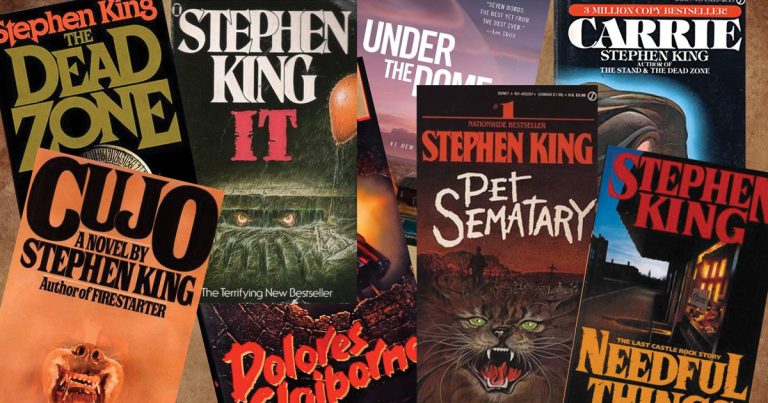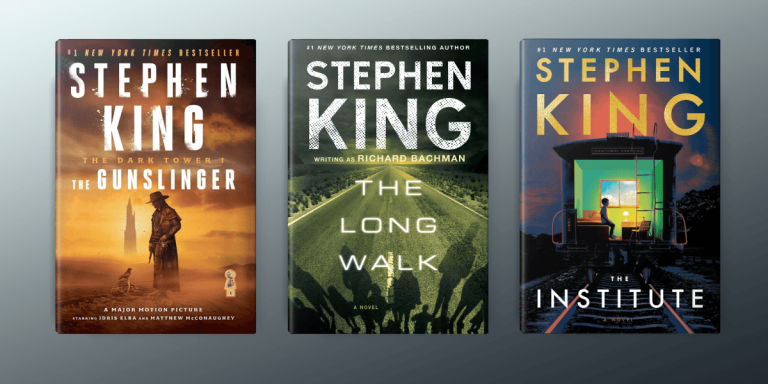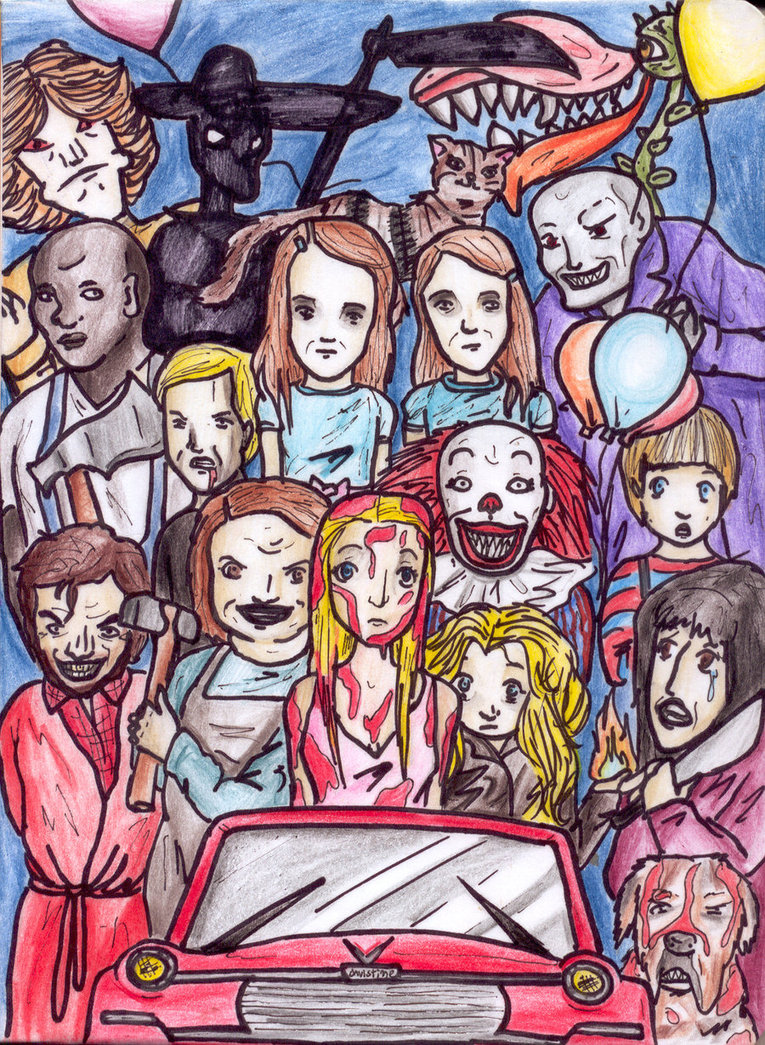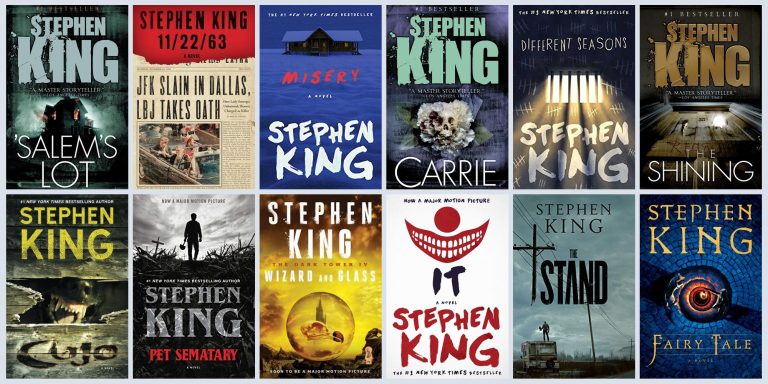The Haunting Machines: Technology And AI In Stephen King’s Books
Buckle up, bookworms, because we’re about to dive into the twisted and mind-bending world of one of the greatest authors of our time: Stephen King. But this time, we’re not exploring the horrors of haunted houses or the terrors lurking in small towns. No, today we’re delving into a different kind of horror—the haunting machines of technology and artificial intelligence that populate King’s captivating novels.
In the vast landscape of King’s literary universe, technology and AI play a significant role, often serving as catalysts for the bone-chilling events that unfold. From possessed cars that come to life with a vengeance to malevolent computer systems that possess unsuspecting individuals, King’s exploration of technology’s dark side will make your spine tingle and your heart race. So, let’s strap ourselves in and take a closer look at the haunting machines that lurk within the pages of Stephen King’s books.
Stephen King’s books have always been filled with haunting machines that explore the dark side of technology and artificial intelligence. From the possessed car in “Christine” to the malevolent AI in “The Tommyknockers,” King’s stories delve into our deepest fears of technology gone wrong. These haunting machines serve as metaphors for our own anxieties about the rapid advancements in technology and the potential dangers they pose. King’s masterful storytelling and ability to tap into our collective fears make his books a chilling exploration of the dark side of technology.

The Haunting Machines: Technology and AI in Stephen King’s Books
Stephen King is a master of horror, known for his ability to create chilling and suspenseful stories that captivate readers. His books often explore the darker side of humanity and the terrifying possibilities that arise when technology and artificial intelligence (AI) go awry. In this article, we will delve into the haunting machines that populate King’s works, examining the themes of technology and AI and their impact on his storytelling. From murderous cars to malevolent computers, King’s exploration of technology offers both thrills and cautionary tales.
The Dark Side of Technology
In many of his novels, Stephen King delves into the dark side of technology, showing us the potential dangers that arise when humans become too reliant on machines. One example is his iconic novel “Christine,” in which a vintage Plymouth Fury becomes possessed by an evil force, turning it into a murderous car. Through the character of Christine, King explores the theme of technology taking on a life of its own and the consequences of unchecked obsession.
Another chilling example of King’s exploration of technology is found in “The Tommyknockers.” In this novel, a mysterious buried spacecraft emits a strange energy that affects the residents of a small town, giving them enhanced intelligence and abilities. However, this newfound power comes at a great cost, as the characters become increasingly consumed by their desire for more knowledge and control. King’s portrayal of the destructive nature of unchecked technology serves as a warning about the dangers of obsession and the potential for self-destruction.
The Pitfalls of Artificial Intelligence
In addition to technology, Stephen King also delves into the realm of artificial intelligence in his works. One of the most notable examples is the story “The Lawnmower Man,” which explores the consequences of enhancing human intelligence through AI. The protagonist, Harold Parkette, becomes involved in a dangerous experiment that leads to his transformation into a superhuman with terrifying powers. Through this story, King raises questions about the ethical implications of AI and the potential for it to be used for nefarious purposes.
Another example of King’s exploration of AI can be found in his novel “Cell.” In this story, a mysterious pulse transmitted through cell phones turns people into mindless, violent creatures. As the protagonist, Clay Riddell, navigates through this post-apocalyptic world, he encounters a group of individuals who have been unaffected by the pulse due to their use of an older, less advanced cell phone model. This narrative highlights the potential dangers of relying too heavily on advanced technology without considering the potential consequences.
The haunting machines that populate Stephen King’s books serve as cautionary tales, reminding us of the potential dangers that arise when technology and AI are left unchecked. Through his storytelling, King warns of the perils of obsession, the ethical implications of AI, and the consequences of relying too heavily on technology. As readers, we are reminded to tread carefully in our relationship with machines, lest we become victims of our own creations.
The Role of Technology in King’s Writing
Stephen King’s use of technology in his writing goes beyond the surface-level scares. It plays a crucial role in developing his characters, creating tension, and exploring deeper themes. Technology often becomes a metaphor for the darker aspects of human nature, reflecting our own fears and vulnerabilities.
In many of his novels, technology acts as a catalyst for the supernatural or the unknown. It serves as a conduit for evil forces, blurring the line between the real and the supernatural. Whether it’s a haunted car or a malevolent computer program, technology becomes the vehicle through which King explores the limits of human knowledge and the consequences of tampering with forces beyond our control.
Furthermore, technology in King’s books often represents the dangers of isolation and disconnection. In a world increasingly dominated by screens and digital communication, King’s stories serve as a reminder of the importance of human connection and the potential consequences of becoming too absorbed in our own virtual worlds. The technological horrors he presents serve as a cautionary tale, urging us to maintain a balance between the digital and the real.
The Power of Imagination
While technology may have its dark side in King’s works, he also emphasizes the power of human imagination to combat these horrors. Characters in his novels often rely on their creativity, resourcefulness, and intuition to overcome the malevolent machines that threaten their lives. King reminds us that our humanity and our ability to think outside the box are essential in the face of technological terrors.
In “The Shining,” for example, the young Danny Torrance possesses the “shining,” an ability to see into the supernatural realm. This power allows him to navigate the haunted Overlook Hotel and ultimately defeat its malevolent forces. Through Danny’s shining, King showcases the strength of the human mind and the power of imagination in the face of technological terror.
In conclusion, Stephen King’s exploration of technology and AI in his books offers readers a glimpse into the potential dangers that arise when humans become too reliant on machines. Through his chilling narratives, King warns of the perils of obsession, the ethical implications of AI, and the consequences of relying too heavily on technology. His stories serve as cautionary tales, urging us to maintain a balance between the digital and the real, and reminding us of the power of human imagination in the face of technological terrors.
Key Takeaways: The Haunting Machines: Technology and AI in Stephen King’s Books
- Technology and artificial intelligence play prominent roles in Stephen King’s books.
- King’s portrayal of technology often highlights its potential for horror and danger.
- AI is depicted as a powerful force that can exhibit human-like qualities.
- The fusion of technology and supernatural elements creates a unique blend of terror.
- King’s stories serve as cautionary tales about the potential consequences of unchecked technological advancements.
Frequently Asked Questions
In Stephen King’s books, technology and artificial intelligence often play a haunting role, adding an eerie and unsettling element to the stories. Here are some frequently asked questions about the portrayal of technology and AI in Stephen King’s books.
1. How does Stephen King incorporate technology into his horror novels?
In Stephen King’s books, technology is often portrayed as a double-edged sword. While it offers convenience and advancement, it also becomes a source of terror and danger. King explores the dark side of technology, highlighting how it can be used for malicious purposes or how it can turn against its users. From haunted cars to malevolent AI, King skillfully weaves technology into his horror narratives, creating a sense of unease and fear.
Moreover, King delves into the psychological impact of technology on individuals and society. He explores themes of addiction, isolation, and loss of humanity in the face of advancing technology, making readers question the consequences of relying too heavily on machines.
2. What are some notable examples of haunting machines in Stephen King’s books?
Stephen King has written several memorable and chilling portrayals of haunting machines in his books. One notable example is the possessed car in “Christine.” The titular car becomes a malevolent force, causing destruction and death as it exerts control over its owner. Another example is “Maximum Overdrive,” where all machines come to life and turn against humanity, leading to chaos and terror.
King also explores the concept of artificial intelligence in books like “The Tommyknockers” and “Cell.” In these stories, AI possesses a sinister intelligence, manipulating and terrorizing humans. These haunting machines serve as powerful symbols of the dark side of technology and the potential dangers of AI.
3. How does Stephen King’s portrayal of technology reflect societal fears?
Stephen King’s portrayal of technology in his books often reflects the fears and anxieties of society at the time of writing. He taps into the unease surrounding rapid technological advancements and the potential consequences they may bring. King’s narratives explore themes of loss of control, invasion of privacy, and the dehumanizing effects of technology, resonating with readers’ concerns about the impact of technology on their lives.
Additionally, King’s portrayal of haunted machines and malevolent AI echoes the fear of a future where technology gains sentience and turns against its creators. These stories serve as cautionary tales, reminding readers of the potential dangers of unchecked technological progress.
4. What messages does Stephen King convey through his depiction of technology and AI?
Through his depiction of technology and AI, Stephen King conveys a cautionary message about the potential dangers of relying too heavily on machines. He warns against the loss of human connection and the erosion of individuality that can come with excessive reliance on technology. King also highlights the importance of maintaining control over our creations and being mindful of the ethical implications of advancing technology.
Furthermore, King’s portrayal of haunting machines and AI serves as a reminder that there are limits to human knowledge and that some things are better left unexplored. He emphasizes the importance of recognizing and respecting the boundaries of our understanding, as delving into realms beyond our comprehension can have disastrous consequences.
5. How does Stephen King’s exploration of technology and AI contribute to the horror genre?
Stephen King’s exploration of technology and AI adds a unique and unsettling layer to the horror genre. By incorporating familiar elements of everyday life, such as cars, phones, and computers, into his narratives, King taps into primal fears and makes the horror feel closer to home. His stories remind readers that the things we rely on and take for granted can become sources of terror and chaos.
Moreover, King’s portrayal of haunting machines and AI challenges the notion that technology is always a force for good. It forces readers to confront the darker side of progress and consider the potential consequences of our technological advancements. By blending technology with horror, King creates a thought-provoking and chilling reading experience that resonates long after the book is finished.
Top 10 Stephen King Novels
Final Thoughts: The Haunting Machines and Stephen King’s Books
As we delve into the world of Stephen King’s books, it becomes evident that technology and artificial intelligence play a haunting role in his storytelling. From the supernatural powers of the “Shining” to the malevolent influence of the “Dark Tower,” King masterfully weaves elements of technology and AI into his narratives, leaving readers both enthralled and unsettled.
Through his vivid imagination, King explores the dark side of technology, highlighting its potential to become a menacing force. His books serve as cautionary tales, reminding us of the power that machines wield and the consequences that can arise when they go awry. With each turn of the page, readers are transported into a world where the line between human and machine blurs, evoking a sense of unease and fascination.
In King’s novels, technology and AI serve as catalysts for fear and horror, tapping into our deepest anxieties about the unknown. By incorporating these themes, King not only captivates his audience but also prompts us to reflect on the implications of our own technological advancements. It is through his storytelling prowess that King encourages us to tread cautiously in the realm of technology, reminding us of the potential dangers that lie beneath its glossy surface.
In conclusion, Stephen King’s books offer a chilling exploration of technology and AI, showcasing their ability to both captivate and terrify. As we navigate an increasingly technologically-driven world, his narratives serve as a reminder to approach these advancements with caution. By delving into the haunting world of machines, King prompts us to reflect on our own relationship with technology and the potential consequences that may arise. So, as we close the pages of his books, we are left with a lingering sense of unease, a testament to King’s ability to infuse his stories with a spine-chilling blend of technology, fear, and human vulnerability.






